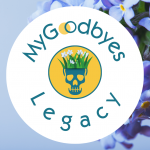The power of storytelling offers us a sense of connection and belonging among future generations. By remembering those who have died and sharing their beliefs, values, and experiences with others, we gain an appreciation for our past and learn invaluable lessons that shape who we are.
1. Sharing family stories can create a sense of connection and belonging for future generations
Remembering those who have gone before us, including their beliefs, values and experiences, helps to create a strong bond with our loved ones. By sharing these stories through generations, we learn about where we’ve come from and gain an appreciation for what has shaped us into the people we are. It’s a common feature of many funerals and wakes — stories of a life are shared with warmth and fondness, and the process helps us heal as well as strengthening family ties when resilience is often required.
2. The power of storytelling and helping preserve cultural traditions and values that might otherwise be lost over time
Storytelling is one of the oldest forms of communication and can be an incredibly powerful way to pass on cultural traditions and values from generation to generation. The power of storytelling can capture and preserve these traditions or ideas that might otherwise be lost. Even if physical objects can’t be passed down, – recipes, rituals, music and dance all make up the – stories that can provide a permanent repository for these treasures. Storytelling offers us a unique opportunity to understand our pasts, learn from our ancestors, and hold onto the identity of our culture or heritage.
3. Hearing stories about ancestors and family history can give younger generations a sense of pride and identity
Listening to stories about our ancestors and family history can give younger generations lots of amazing gifts. It doesn’t just make them feel proud and connected to their roots, but it also helps them understand who they are. When we know our history, we feel like we’re part of something bigger than just ourselves, which can be really helpful as we get older. It’s especially comforting for older people to know that their family legacy will be passed down to future generations, because it gives them a sense of peace and love that they can hold onto.
4. Sharing stories with grandchildren or other young family members can provide a valuable opportunity for bonding and passing on important life lessons
Telling stories to young relatives is a really special chance to leave a legacy and pass on some important messages. Not only can you enjoy reminiscing about the past, but you can also teach some really valuable lessons in a way that makes them memorable, relevant, and more likely to have an impact. Sharing stories lets older people end their lives on a positive note, while also giving them the chance to share some important values and wisdom. They can take both pride and comfort knowing their lessons live on and help the younger generation grow, even after they’re gone.
5. By recording family stories and memories, we can ensure that they are not lost to time and can be passed down for generations to come
By carefully recording stories and family memories, we can make sure they get passed onto future generations. Even if our ancestors’ oral history was thought to be forgotten, we can keep it alive through the stories we tell. We can share our favourite recipes and tales of the good old days, and those stories will become treasured collective family heirlooms that will be passed down for years to come. Read more on how to get prepared for end of life decision making here. Alternatively, read this external post on “Life, Death and the Stories in Between” here.




 Choosing a Funeral Director
Choosing a Funeral Director  Alt:Endings
Alt:Endings  How to Balance Work and Life After A Break
How to Balance Work and Life After A Break  MyGoodbyes Party – Picnic in the Park
MyGoodbyes Party – Picnic in the Park  Planting Memories with Forget Me Not Seeds #ForgetMeNotChallenge
Planting Memories with Forget Me Not Seeds #ForgetMeNotChallenge  Family history and legacy
Family history and legacy  The Briefing: Vicki Gulliver Head of the Probate team at Lodders
The Briefing: Vicki Gulliver Head of the Probate team at Lodders  Words With….David Hieatt
Words With….David Hieatt